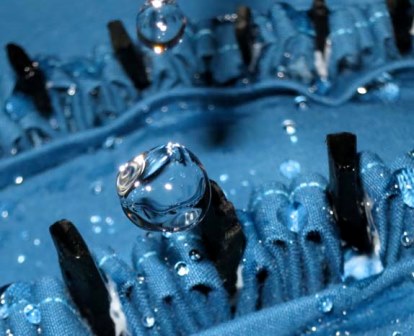Towards Posthumanist Design: With Water
DOI:
https://doi.org/10.7577/formakademisk.542Keywords:
Agency, performativity, posthumanism, architecture, making, environment, ethics, embodied knowledge, human-nonhumanAbstract
The article presents an investigation into the performative as developed by Hensel (2010) and the posthumanist as developed by Haraway (1988) within a broadly architectural context. By assuming the agency and continuous becoming of the material world, the culturally located and anthropocentric notion of the designer is called into question. The practice of posthumanist and performative design collaboration across the human-nonhuman spheres is presented as analternative. The development of a collaborative process between water as matter, and the maker/designer is the focus. A practice based investigation of theoretical ideas around agency, irony, relational dialectics and situated andembodied knowledge as developed by Barad (2003), Haraway (1988) and Linton (2010) is documented through a series of collaborative experiments with water.The article concludes that the enactment of our human-nonhuman, material-semiotic relationships precludes our knowledge. It posits the process based practice of designing from a performative and posthumanist site of irony, embodiment and continuous socio-natural becoming as an effective environmental strategy for design.
Downloads
Published
2013-11-19
How to Cite
Meaney, L. (2013). Towards Posthumanist Design: With Water. FormAkademisk, 6(2). https://doi.org/10.7577/formakademisk.542
Issue
Section
Articles
License
Authors who publish with this journal agree to the following terms:
- Authors retain copyright and grant the journal right of first publication with the work simultaneously licensed under a Creative Commons Attribution 4.0 License that allows others to share the work with an acknowledgement of the work's authorship and initial publication in this journal.
- Authors are able to enter into separate, additional contractual arrangements for the non-exclusive distribution of the journal's published version of the work (e.g., post it to an institutional repository or publish it in a book), with an acknowledgement of its initial publication in this journal.
- Authors are permitted and encouraged to post their work online (e.g., in institutional repositories or on their website) prior to and during the submission process, as it can lead to productive exchanges, as well as earlier and greater citation of published work (See The Effect of Open Access).
- The author(s) must manage their economic reproduction rights to any third party.
- The journal makes no financial or other compensation for submissions, unless a separate agreement regarding this matter has been made with the author(s).
- The journal is obliged to archive the manuscript (including metadata) in its originally published digital form for at least a suitable amount of time in which the manuscript can be accessed via a long-term archive for digital material, such as in the Norwegian universities’ institutional archives within the framework of the NORA partnership.
The material will be published OpenAccess with a Creative Commons 4.0 License which allows anyone to read, share and adapt the content, even commercially under the licence terms:
This work needs to be appropriately attributed/credited, a link must be provided to the CC-BY 4.0 licence, and changes made need to be indicated in a reasonable manner, but not in any way that suggests that the licensor endorses you or your use.



